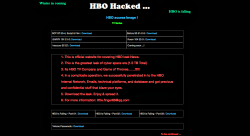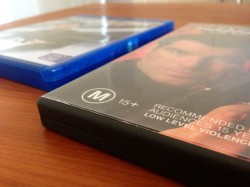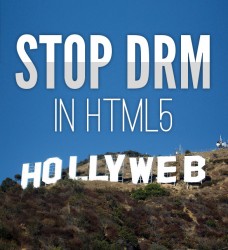Sorry again for the lack of a WNR last week – I know this is kind of getting ridiculous, but I had a good excuse. I have just moved house and with everything in such a state of mess, I couldn’t even find a proper surface to put my laptop on, let alone do any work (and that’s if I had time, which I didn’t).
You didn’t miss much though, and some of the stuff from then will be covered in this WNR as well. Let’s get going then!
![]()
I had totally forgotten about it, but apparently the FBI did not, and the identify of the HBO hacker has been revealed. 29 year-old Behzad Mesri is the man the FBI says is responsible for the hack and the leak of confidential information from HBO, which included episode spoilers for ‘Game of Thrones’, as well as actual unaired episodes from other HBO shows.
Mesri had gained access to HBO’s systems, possible through social engineering techniques linked to an executive at the company. He then demanded a ransom payment of $6 million in Bitcoins, but when HBO failed to negotiate, Mesri did what he promised and started leaking content from July through August.
Charges that could carry a maximum of 42 years in prison have been laid, but it’s unlikely Mesri will ever face justice. The reason? Mesri currently live in Iran!
Also noteworthy, but maybe not, was the fact that Mesri used to work for the Iranian military involved in hacking the computer systems of foreign governments and enemies. The HBO hack, then, was probably a stroll in the park for Mesri. There is no suggestion that the Iranian military had any interest in the hack, I mean, why would they unless they too were big fans of ‘Game of Thrones’.
Speaking of foreign interference, Hollywood studios are trying to tell us Aussies are not as worthy as Americans when it comes to having fair use protection. The MPAA is lobbying the Australian government to not give us the same rights that citizens of the trade group’s home country, the United States, currently enjoy.
Having fair use rights would enshrine into law the rights that we, as consumers, ought to have when it comes to using content that we’ve already paid for. This would mean things like making a personal copy of a movie ought to be legal, even if it means circumventing copy protection. This would also mean extra protection for educators, and also security researchers when it comes to finding security flaws (as sometimes you need to attempt to break the protection before you can find its weakness). It’s all common sense stuff that kind of falls into a legal grey area at the moment – you’re most likely not going to get sued for it, but even if you do, you’ll most likely win the case in court – fair use exemptions simply make it clearer from a legal point of view what is actually allowed and not allowed.
You would think the creative industry, or everyone really, should embrace injecting this kind of clarity into the copyright laws, but for Hollywood, they are against anything that has the perception of watering down copyright laws, regardless of whether it’s something that’s good for the economy or good for consumers. So I hope the Australian government sees the MPAA’s opinions as exactly what it is – a biased opinion from a group that puts its own self interest above everything, the economy, the rights of its customers, and common sense.
![]()
With Australian retailers freaking out at the moment about the introduction of Amazon into our market, one thing is for sure, the increased competition should lead to lower prices for a lot of things, and in particular things like DVDs and Blu-rays. This is because a lot of Australians already have experience buying movies from Amazon US or UK (back when the exchange rate was more favourable), so much so, that Amazon has had a local warehouse here for ages now to deal with the ever increasing sales.
It won’t be the only pressure on DVD and Blu-ray pricing though, as the latest data from the UK shows that streaming services such as Netflix and online retailers have had a big effect on when retailers and studios choose to drop prices for the latest films. Retailers are dropping prices sooner and with a great amount than before, according to the latest data, and competition from the likes of Amazon Instant Video and online retailers, as well as supermarkets engaged in loss leading practices, is the main cause.
Adding my own personal anecdotal evidence into the mix, I’ve dramatically cut down on the number of movies I buy on disc since the arrival of Netflix and local streaming options. And so when I buy, it will only be because of a really great price. If other feel the same way as I do, then prices are only going to go down even further. Subscription streaming has definitely, in my opinion, lowered the value of movies to the point where I think it’s ridiculous to pay AUD $30 for one. Buying movies also has other problems that streaming and digital sellthrough does not have – as someone who is in the middle of moving, having endless number of boxes full of Blu-rays and DVDs is a real headache. On the positive side, I’m definitely going to the movies more with the money I’ve saved buying discs (but my overall spending is still way down).
Although with Amazon arriving locally, and if they can give us some great deals on Blu-rays, I might just get back into buying – not as much as before, but more than now. It really is all just about perceived value, isn’t it?
======
Well, that’s it for the week. Hope you’ve had a nice Thanksgiving for those in the U.S., a good result from Black Friday (not only in the U.S., it seems to be everywhere now), and hope you grab a bargain on Cyber Monday too. See you next week.













